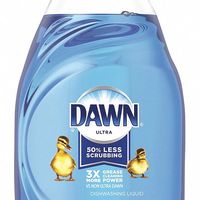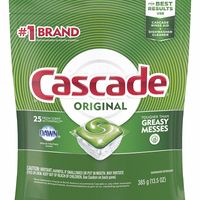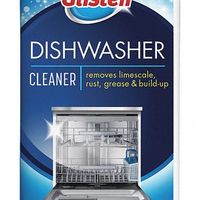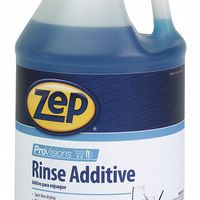Call +(254) 703 030 000 / 751 483 999 / 721 704 777
- Home
- Cleaning And Janitorial
- Cleaning Chemicals
- Dishwashing Soaps Detergents Rinses
.....Read More
Frequently Asked Questions
What is the best dishwashing soap for removing grease?
Dawn Ultra Dishwashing Liquid is widely regarded as one of the best dishwashing soaps for removing grease. Its formulation is specifically designed to cut through tough grease and grime, making it a popular choice among consumers and professionals alike. The soap's powerful surfactants break down grease molecules, allowing them to be easily rinsed away with water. Additionally, Dawn's concentrated formula means that a small amount goes a long way, providing excellent value for money.
Another strong contender is Palmolive Ultra Strength Dish Liquid. Known for its thick, rich formula, Palmolive effectively tackles stubborn grease and food residues. It is gentle on hands while being tough on grease, making it a balanced choice for those who wash dishes frequently.
Seventh Generation Dish Liquid is an eco-friendly option that doesn't compromise on grease-fighting power. Made with plant-based ingredients, it is free from synthetic fragrances and dyes, making it a suitable choice for those with sensitive skin or environmental concerns.
For those seeking a natural alternative, Mrs. Meyer's Clean Day Dish Soap offers a biodegradable formula with essential oils that effectively cut through grease. It is available in various pleasant scents, adding a touch of aromatherapy to the dishwashing routine.
In summary, Dawn Ultra Dishwashing Liquid stands out for its superior grease-cutting ability, but options like Palmolive Ultra Strength, Seventh Generation, and Mrs. Meyer's Clean Day provide excellent alternatives depending on personal preferences and environmental considerations.
How do dishwashing detergents work to clean dishes?
Dishwashing detergents clean dishes through a combination of chemical and physical processes. They contain surfactants, which are molecules with hydrophilic (water-attracting) heads and hydrophobic (water-repelling) tails. When detergent is added to water, these surfactants arrange themselves around grease and food particles, with their hydrophobic tails embedding into the grease and their hydrophilic heads facing outward into the water. This forms structures called micelles, which encapsulate the grease, allowing it to be suspended in water and rinsed away.
In addition to surfactants, dishwashing detergents often contain enzymes, such as proteases and amylases, which break down proteins and starches, respectively. These enzymes catalyze the breakdown of food residues into smaller, water-soluble molecules that can be easily washed away.
Detergents also include builders, such as phosphates or citrates, which soften water by binding to calcium and magnesium ions. This prevents these ions from interfering with the cleaning action of the surfactants and helps prevent the formation of soap scum.
Some detergents contain bleaching agents, like sodium percarbonate, which help remove stains and sanitize dishes by releasing oxygen when dissolved in water. Additionally, anti-redeposition agents prevent loosened dirt from resettling on dishes.
The mechanical action of scrubbing or the high-pressure water jets in dishwashers further aids in dislodging food particles and distributing the detergent evenly across surfaces. The combination of these chemical and physical actions ensures that dishes are thoroughly cleaned, free of grease, food residues, and bacteria.
Can I use regular dish soap in a dishwasher?
No, you should not use regular dish soap in a dishwasher. Regular dish soap is formulated to create a lot of suds, which can overflow from the dishwasher and cause a mess in your kitchen. These suds can also interfere with the dishwasher's cleaning process, potentially leaving a soapy residue on your dishes and inside the machine.
Dishwashers require specially formulated detergents that are low-sudsing and designed to work with the machine's cleaning cycle. These detergents effectively break down food particles and grease without creating excessive foam. Using the correct detergent ensures that your dishes are cleaned properly and that the dishwasher operates efficiently.
If you accidentally use regular dish soap in your dishwasher, you should stop the cycle immediately and clean out the soap suds. You may need to run a rinse cycle or two to clear out any remaining soap. To prevent this issue, always use a detergent specifically labeled for dishwasher use.
What is the purpose of a dishwasher rinse aid?
A dishwasher rinse aid is designed to improve the drying process and enhance the overall cleanliness of dishes in a dishwasher. Its primary purpose is to reduce the surface tension of water, which helps water to sheet off dishes rather than form droplets. This sheeting action prevents water spots and streaks from forming on glassware, cutlery, and dishes, resulting in a spotless and shiny finish.
Rinse aids contain surfactants, which are compounds that lower the surface tension of liquids. By doing so, they allow water to spread more evenly across the surface of the dishes, facilitating quicker and more efficient drying. This is particularly beneficial for glass and plastic items, which are prone to spotting and may not dry completely during a standard dishwasher cycle.
Additionally, rinse aids can help prevent the buildup of detergent residues, which can leave a film on dishes. They also assist in maintaining the dishwasher's performance by reducing mineral deposits and limescale buildup on the machine's internal components, such as the spray arms and heating elements.
Using a rinse aid can be especially advantageous in areas with hard water, where mineral content is high, and spotting is more prevalent. Most modern dishwashers have a dedicated compartment for rinse aid, allowing for easy dispensing during the rinse cycle. Some dishwashers also have adjustable settings to control the amount of rinse aid used, depending on the hardness of the water and the user's preference.
In summary, a dishwasher rinse aid enhances drying efficiency, prevents water spots and streaks, reduces detergent residue, and helps maintain the dishwasher's performance, ensuring dishes come out clean and sparkling.
How often should I use a dishwasher machine cleaner?
You should use a dishwasher machine cleaner once a month. Regular cleaning helps maintain the efficiency and longevity of your dishwasher by removing limescale, grease, and food debris that can accumulate over time. Monthly cleaning prevents unpleasant odors, ensures optimal performance, and reduces the risk of mechanical issues. If you use your dishwasher frequently or notice buildup or odors sooner, you might need to clean it more often. Always follow the manufacturer's instructions for the specific cleaner you choose to ensure safe and effective use.
Are there eco-friendly dishwashing detergents available?
Yes, there are eco-friendly dishwashing detergents available. These products are designed to minimize environmental impact while effectively cleaning dishes. They typically contain biodegradable ingredients that break down naturally without harming aquatic life. Eco-friendly detergents often avoid phosphates, chlorine, artificial fragrances, and dyes, which can be detrimental to ecosystems. Instead, they use plant-based surfactants and essential oils for fragrance.
Many brands are committed to sustainability, using recyclable or biodegradable packaging to reduce waste. Some also focus on concentrated formulas, which require less packaging and reduce carbon emissions during transportation. Certifications like USDA Organic, EcoLogo, and Green Seal can help identify genuinely eco-friendly products.
Consumers can find these detergents in health food stores, online, and increasingly in mainstream supermarkets. Popular brands include Seventh Generation, Ecover, and Method, among others. By choosing eco-friendly dishwashing detergents, consumers can contribute to a healthier planet while maintaining clean dishes.
How do I prevent spots and streaks on my dishes?
To prevent spots and streaks on your dishes, follow these steps:
1. **Use a Rinse Aid**: Add a rinse aid to your dishwasher. It helps water slide off dishes, reducing spots and streaks.
2. **Proper Loading**: Load dishes correctly. Ensure they don’t touch each other, allowing water and detergent to circulate freely.
3. **Check Water Temperature**: Ensure your water heater is set to at least 120°F (49°C). Hot water dissolves detergent better and aids in drying.
4. **Use Quality Detergent**: Choose a high-quality dishwasher detergent. Some detergents are specifically formulated to reduce spotting.
5. **Regular Maintenance**: Clean your dishwasher regularly. Remove food debris from the filter and check spray arms for clogs.
6. **Water Softener**: If you have hard water, consider installing a water softener. Hard water leaves mineral deposits that cause spots.
7. **Vinegar Rinse**: Occasionally run an empty cycle with a cup of white vinegar. It helps remove mineral buildup inside the dishwasher.
8. **Avoid Overloading**: Don’t overload the dishwasher. Overcrowding prevents proper cleaning and rinsing.
9. **Use the Right Cycle**: Select the appropriate cycle for the load. Heavier cycles for pots and pans, lighter for glassware.
10. **Drying Method**: Use the heated drying option if available. Alternatively, open the door slightly after the cycle to let steam escape and air dry.
11. **Check Water Pressure**: Ensure your home’s water pressure is adequate. Low pressure can affect the dishwasher’s performance.
12. **Inspect Seals and Gaskets**: Ensure seals and gaskets are intact to prevent leaks that can cause streaks.
By following these steps, you can significantly reduce or eliminate spots and streaks on your dishes.



